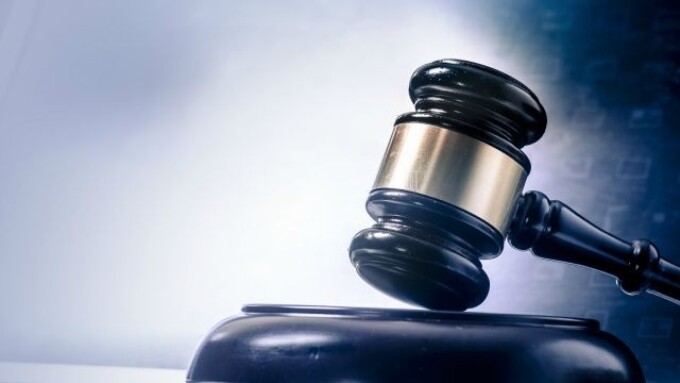PROVINCETOWN, Mass. — Industry attorney Lawrence Walters has taken on a case of significant importance in free speech circles — one that challenges an artist over his reproduction of Florida’s state seal.
Walters, counsel to numerous adult entertainment companies and whose FirstAmendment.com domain spells out his particular interest of law, represents Jay Critchley, a Provincetown, Mass., multimedia artist known for his provocative works.
In a multimedia presentation he unveiled earlier this year, Critchley used Florida's state seal inside the "O" in the words "Mobil Warming."
"Mobil Warming," in Critchley’s presentation, is the name of a mock corporation that plans on selling the remains of Miami Beach as an island resort destination.
Miami has been listed as potentially the most vulnerable city worldwide in terms of property damage, with more than $416 billion in assets at risk to storm-related flooding and sea level rise.
In Critchley’s new island of Miami Beach, residences start at $22.5 million and the privileged can enjoy "indoor beaches" in "border-secure, sustainable island living with all the comforts you deserve."
In a cease-and-desist letter, Florida Gov. Scott's administration objected to Critchley's inclusion of the seal in the art piece, saying that use of the state seal requires a permit, according to Florida law.
Walters sent a letter back to the governor’s legal counsel stating that his client “enjoys a First Amendment right to continue his publication of the seal in his political speech. We therefore request that your office retract the demand.”
For Walters, the case is “one of the clearest First Amendment violations I’ve seen in my years of practice.”
“The government claims that you must obtain its permission to use a particular symbol in political speech that is critical of the government,” Walters told XBIZ. “At the same time, the government can prohibit you from using that symbol unless it promotes the government’s goals.
“This gives the government a monopoly on use of the symbol in any way that the government doesn’t like. This kind of prohibition is antithetical to the First Amendment.”
Walters, also a member of the First Amendment Lawyers Association (FALA), went on to say that the cease-and-desist letter from the governor’s office imposes a prior restraint on Critchley’s protected speech, and creates a content based restriction, in violation of the First Amendment.
“The permit requirements are both overbroad and vague, and give the government unlimited discretion in deciding who will receive a permit to use the ‘Great Seal,’” he said. “We hope that, upon some thoughtful reflection over the holidays, the state will see the constitutional problem here, and rescind the cease and desist demand.”
Walters, who took the case pro bono, said he has not heard back from state officials about retracting the demand letter.






